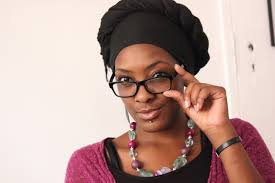
Local producer and rapper Tapfumanashe Mutseyekwa has partnered with vivacious songstress Tererai Mugwadi to set up a recording studio in Harare.
By Kennedy Nyavaya
Operating in the Avenues area, the studio — named Tea-Time Records — has opened its doors to artists and the first project by the duo titled, Hope is out and set to hit local radio stations soon.
In an interview with The Standard Style, Mutseyekwa, who is also a nephew to the late legendary producer Fortune Muparutsa, said he was inspired by his late uncle to make music and his prowess has continued to guide him in his musical journey.
“Muparutsa had a major influence in the way I make my music because he is one of the best things to ever happen to our local music scene,” said Mutseyekwa. “I feel like I learned straight from the masters of the trade.
“We are trying our best to implement professionalism, hence we have taken so long to bring it to life and what to expect is nothing but good music.”
The young producer who has in the past worked with great artists like Andy Brown, Flash Gordon and Cindy Munyavi, among others, said considering the economic crisis in the country, their fair prices will be “compromised when we recognise real talent”.
- Chamisa under fire over US$120K donation
- Mavhunga puts DeMbare into Chibuku quarterfinals
- Pension funds bet on Cabora Bassa oilfields
- Councils defy govt fire tender directive
Keep Reading
Recently he worked with South Africa’s Lvovo Derango and has targeted more artists from that country.
“I have been in Durban recently where I worked with Lvovo Derango and we had a song titled Zunza that we did together on his recent album called The Boss and I also met with Big Nuzz, whom I am yet to finish a pending record with,” he said.
In addition to the first track the studio has so far released, they are currently working on another track featuring Leonard Mapfumo.
Mugwadi, a revered music diva who has significant achievements owing to her striking vocals, said passion spurred her to go past the microphone into the entire production of music.
“Well, I have always wanted to set up a space of my own so that I would exercise my music strength, as well as assist those who are coming up and might not be financially stable yet talented,” said Mugwadi.
She also hinted at more of her productions to hit the music scene this year, but could not be swayed into divulging more details.
Despite its rapid growth, Zimbabwean music has in most cases been found wanting on quality thereby failing to break into markets beyond the country’s borders.












